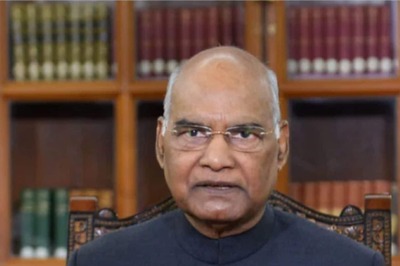
views
KOCHI: Deprivation of sleep causes physical and mental problems and faster deaths than those deprived of food. Sleep is a naturally recurring state characterized by reduced or absent consciousness, relatively suspended sensory activity and inactivity of nearly all voluntary muscles. Sleep is also a heightened anabolic state, accentuating the growth and rejuvenation of the immune, nervous, skeletal and muscular systems. Insomnia or sleeplessness is most often defined or evaluated by an individual’s report of sleeping difficulties. Insomnia is also defined by some others as a positive response to either of the two questions: “Do you experience difficulty in sleeping?” or “Do you have difficulty falling or staying asleep?” Insomnia can be grouped into primary and secondary or co-morbid insomnia. Primary insomnia is a sleep disorder not attributable to a medical, psychiatric or environmental cause. Insomnia can be classified as transient, acute or chronic. Transient insomnia lasts for less than a week. It can be caused by another disorder, by changes in the sleep environment, by the timing of sleep, severe depression or by stress. Acute insomnia is the inability to consistently sleep well for a period of less than a month. Chronic insomnia lasts longer than one month. It can be caused by another disorder, or it can be a primary disorder. Its effects can vary according to its causes. They might include muscular fatigue, hallucinations and mental fatigue. Sleep onset insomnia is difficulty falling asleep at the beginning of the night, often a symptom of anxiety disorders or the delayed sleep phase disorder.Nocturnal awakening are characterized by difficulty returning to sleep after awakening in the middle of the night or waking too early in the morning. The former may be a symptom of pain disorder or illness; the latter is often a characteristic of clinical depression. A common misperception is that the amount of sleep required decreases as a person ages. There are also cases where persons use amphetamine group of drugs to keep awake at night purposely. They meet with drastic and dangerous consequences. There is this case of a 27-year-old driver, who after taking four times the average dose of amphetamine, kept vigilant for a couple of days to cover a 1600 mile trip and after that shot his boss, suspecting that poison was being released into his vehicle. Sleep deprivation (or insomnia) for a long time may produce drastic consequences. It is important to identify or rule out medical and psychological causes before deciding on the treatment for insomnia. Attention to sleep hygiene is an important first line treatment strategy and should be tried before any pharmacological approach is considered. Hypnotic medication is recommended only for short-term use, especially in acute or chronic insomnia. Alcohol is often used as a form of self-treatment to induce sleep. But sometimes alcohol use can be a cause of insomnia.Dr C P SomasundaramEmiritus Clinical ProfessorDepartment of Clinical Psychology, Amrita Institute of Medical Sciences and Research Centre, Ph. 2801234




















Comments
0 comment